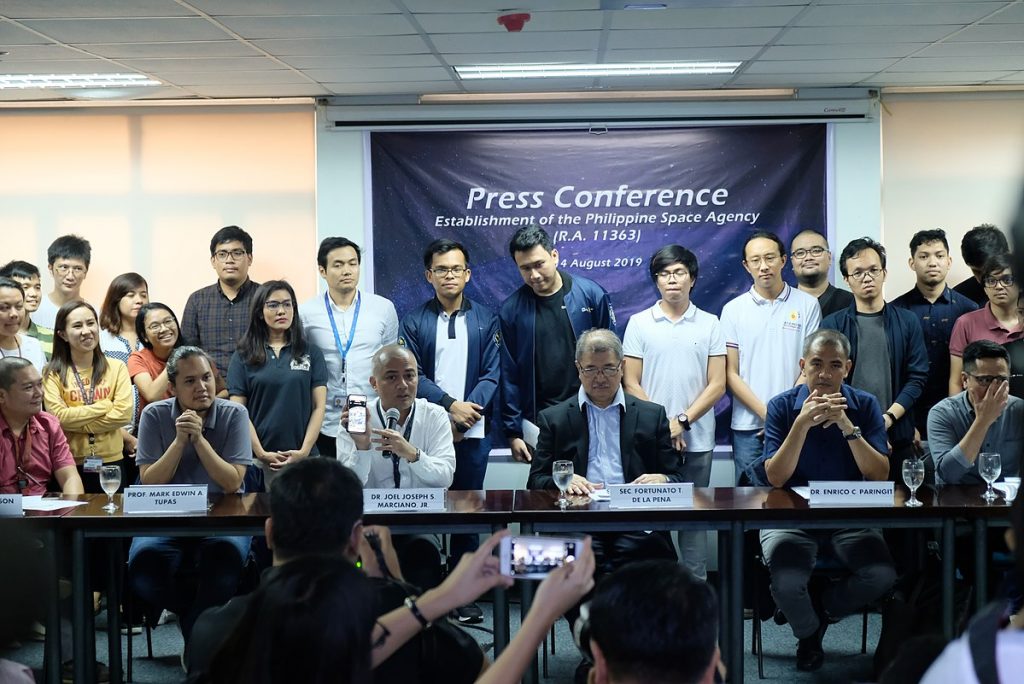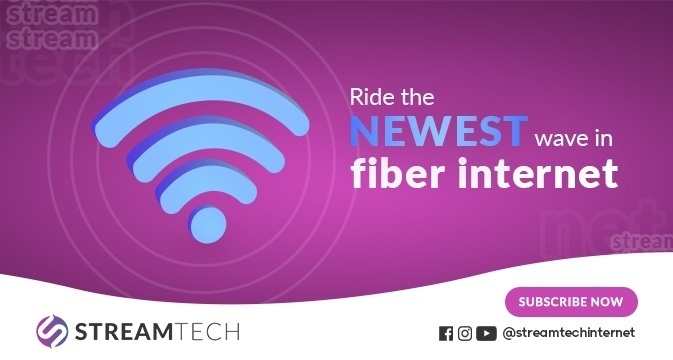Written by: Maine Dela Cruz
For decades, space seems like an impossible feat for the Philippines. Developed countries like the United States, China, and Russia are space tech giants we look up to. The introduction of technologies such as the internet has also paved the way for space technology to thrive in the country, thanks to the rapid increase of internet providers in the Philippines.
What is space technology and how will it shape our future? Read on to learn more.
What is Space Tech?
Space technology, also known as space tech, is the application of engineering concepts to the design, development, construction, and operation of space travel and exploration technologies and systems.
Additionally, new technologies originating with or accelerated by space-related endeavors are often subsequently exploited in other economic activities.
Current Efforts to Implement Space Tech in the Country

The Philippine government is implementing a plethora of programs, most especially in the education sector, to strengthen space technology in the country. Here are some of them:
1. National Space Development Program
The National Space Development Program (NSDP), the country’s space program, was established to help craft the policy framework for space development and utilization and the proposed national space agency. Commissioned and funded by the Philippine Council for Industry, Energy and Emerging Technology Research and Development of the DOST (PCIEERD-DOST), the program conducted studies and stakeholder meetings towards formulating a space R&D, satellite utilization, and data sharing agenda for the country.
2. Public Schools of the Future in Technology (PSOFT) Act
Albay Representative Joey Salceda, the author of the bill, told the Philippine News Agency the bill aims to ensure that there is adequate investment in digital and technological infrastructure for the country’s public schools.
“There shall also be courses for higher-order skills from emerging industries such as artificial intelligence, big data, and other frontier technologies. Of course, these changes would require investment in teachers, which this bill also hopes to secure,” Salceda said.
The bill also improves the country’s basic education framework to allow for expanded online learning.

You may also check out these related articles:
- Satellite Internet vs Fiber Internet – Which is better?
- All you need to know about Internet of Things (IoT)
- Here are Some Mind-blowing Facts about the Internet
- This is the future of the internet after 10 years
- What is DICT’s National Broadband Plan of the Philippines?
- What is the Philippine National Cybersecurity Plan 2022?
3. INCENTIVISE Project
INCENTIVISE (Introducing Non-Geostationary Satellite Constellations Test Deployments to Improve Internet Service) project calls for new Satellite Internet Operators (SIOs) to launch test deployments in selected remote sites.
By allowing satellite SIOs to conduct test deployments in the country, government agencies like DepED, the private sector, and the public can experience and assess the performance of satellite broadband internet services for various, such as education, telehealth, disaster response, telecommuting, and e-commerce, among others.
4. Philippine Space Science Education Program
In addition, the Philippine Space Science Education Program (PSSEP) seeks to create awareness among the students on career opportunities in the various fields of science and engineering including space science that would raise standards and address skill shortages in this discipline. It also highlights space technology applications in critical areas such as disaster mitigation, environment planning and management, industry, and food security. The PSSEP culminates with the celebration of the World Space Week (WSW) every year with SEI as the national lead organizer.
Concerned Agencies
Department agencies work hand-in-hand to ensure the implementation of space technology in the country. Here are some of them.
Philippine Space Agency
The Philippine Space Agency (PhilSA) is the national space agency of the Philippines. It is responsible for ensuring space technology is utilized properly and in accordance with the international standards from space research, space education, and more.
The unified space agency is defined by the Philippine Space Act (Republic Act No. 11363) which was signed into law on August 8, 2019, by President Rodrigo Duterte, intended to manage and operate the decentralized space program of the Philippine government, which was handled by various agencies of the Department of Science and Technology (DOST).
Department of Science and Technology
The Department of Science and Technology–Science Education Institute (DOST-SEI) launched the first Philippine Space Science Education Program (PSAP) in 2004, to promote science and technology, particularly space science, as a field of study to the Filipino youth.
DepEd and Department of Information and Communications Technology
PSOFT Act includes a provision that mandates that the Department of Education (DepEd), Department of Information and Communication Technology, and Philippine Space Agency shall immediately include in their respective programs the implementation of the proposed law, the funding of which shall be in the annual General Appropriations Act.
The Importance of Space Education in the Philippines

Certainly, space tech has many beneficial applications in the Philippines. To also strengthen this, incorporating space technology in the country’s basic education framework is imperative. The following are the importance of space education in the Philippines:
1. Bridge the digital divide among learners
Among the components of the PSOFT Roadmap is the “Universal Access to the Internet for Public Schools”, which aims that all public basic education schools be provided with internet access to help reduce the digital divide among learners and raise the standards of education for all.
2. Establish infrastructure to improve teaching and learning processes
Additionally, the need to build, use and sustain modern infrastructure for providing accessible quality education is a long-standing one.
3. Build a space-enabled economy
“Given the rapid advances in space technologies seen globally, it is imperative that the country take necessary steps in building a future knowledge workforce that can contribute to a space-enabled economy. PhilSA will (help) engage DepEd (Department of Education) in developing, enhancing and strengthening relevant SSTA (space science and technology applications) concepts and practice as one foundational technology to be introduced and sustained in the curriculum,” PhilSA Director General Joel Marciano Jr. told the Philippine News Agency in December.
4. Reduce skills gap
According to Salceda, the global economy has become skills-based and highly interconnected. In fact, most of the global wealth is now information-based. In a presentation I delivered to the Committee on Higher and Technical Education, I argued that knowledge is now the wealth of nations. Our citizens will now have to be able to go toe-to-toe with citizens from other countries,” Salceda said.
He noted that measures of the global competitiveness of Filipino learners show “disappointing” results.
He cited the results of the 2018 Programme for International Student Assessment (PISA) revealing that the Philippines scored 353 in Mathematics, 357 in Science, and 340 in Reading, all below the average of participating OECD countries.
“This is the reason we need to invest in education reform and infrastructure,” Salceda said.
He added that the Philippines is a country of diplomas, but not necessarily of skills. This is also untenable in a skills-based global economy. He further emphasized the need to change this with meaningful education reforms to improve skills.
Learn Space Tech with Streamtech!

Indeed, the future is now. Thus, fast, reliable fiber internet is essential in exploring space technologies. Streamtech is one of the newest internet providers in the Philippines. Indeed, it offers dedicated fiber internet access, leased line, and WiFi services to subscribers in the franchise areas. This is powered by its own fiber-optic backbone link. Through its fiber internet plans, subscribers can rest assured of having a fast and reliable connection, thereby, seamless access to online contents of their needs.
Not only does it offer a fast fiber internet connection, but it also connects you to your favorite television channels. Its partnership with Planet Cable also allows you to subscribe to a cable-internet bundle. So, subscribe now to the best internet provider in the Philippines. You may also visit the Streamtech official FB Page to learn more.









